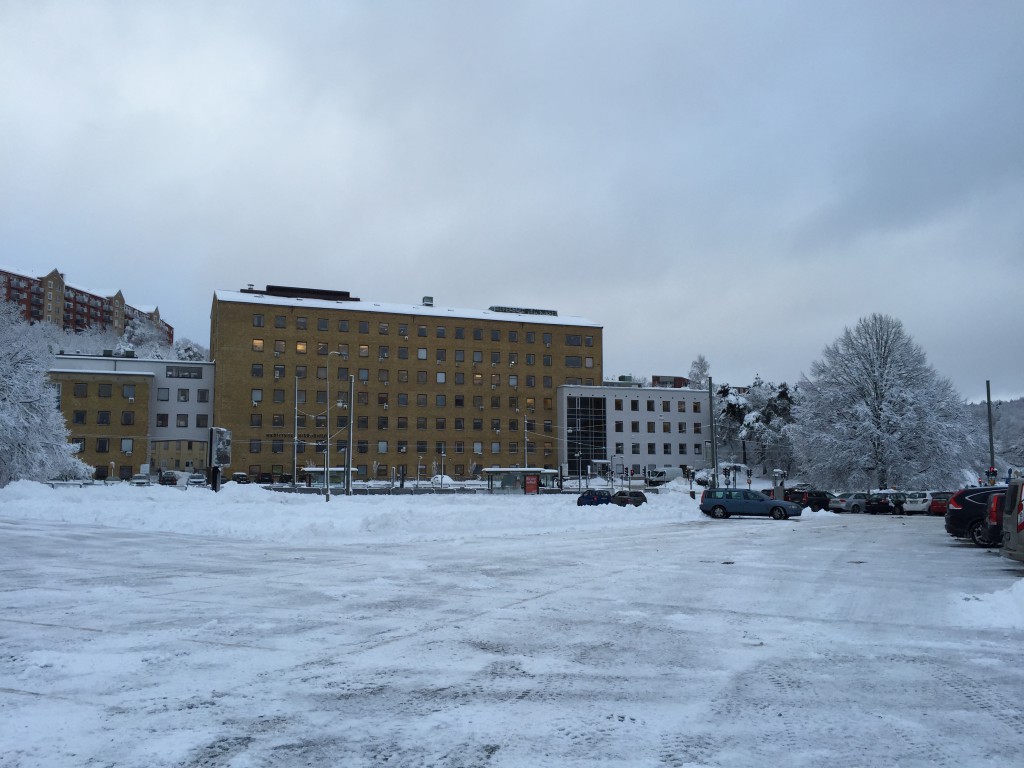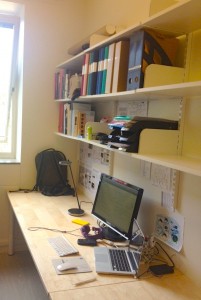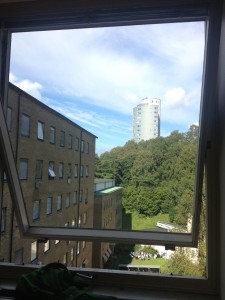PhD position with Joakim Larsson
My PhD supervisor Joakim Larsson has an opening for a PhD student at University of Gothenburg. The project is on the role of different wastewaters in the evolution of antibiotic resistance, and will be centered on bioinformatic analyses of large-scale data. The project will encompass analysis of bacterial growth curve data through machine learning to antibiotics with selective effects in different wastewaters. Comparative genomics and different AI-based approaches will be applied to large-scale public genome and metagenome data to better understand how resistance genes are mobilized and transferred to pathogens.
Joakim is a great scientist with a vibrant group, so if your interests is in line with the position, I strongly suggest you take a look at it! Deadline is October 30! Application link here: https://web103.reachmee.com/ext/I005/1035/job?site=7&lang=UK&validator=9b89bead79bb7258ad55c8d75228e5b7&job_id=30401
BIG NEWS: We’re moving to Chalmers
I have very big and exciting news to share with you. After more than 10 years at the Sahlgrenska Academy, me and my lab will be moving from the University of Gothenburg to Chalmers University of Technology (which is physically a move of less than a kilometer, so still within Gothenburg). I have been offered a position at the Division of Systems Biology, funded by the SciLifeLab and Wallenberg National Program for Data-Driven Life Science (DDLS). The total funding to my lab will be 17 million SEK, with some co-funding from Chalmers added in on top of that.
I am of course very excited about this opportunity, which will bring some infrastructure that we need in-house that we don’t have easy access to today. At the same time, I am sad to leave my academic ‘home’, and the fantastic people we have been working with there for the years. I am also endlessly thankful for the support and trust that the Sahlgrenska Academy, the Institute of Biomedicine and the Department of Infectious Diseases have put into me and my research over the past years.
The transition to Chalmers will start already in May, but will be gradual and continue for a long time. We have close ties to the Sahlgrenska Academy and we will keep closely collaborating with researchers there. I will also retain an affiliation to the University of Gothenburg, at least for the near future.
All in all, this year will bring very interesting development, and this additional funding from the DDLS program will allow us to venture into new areas of bioinformatics and try out ideas that have previously been out of reach. I look forward to work with our new colleagues at Chalmers and within the DDLS program in the coming years!
Grant successes!
I am a bit late on the ball here, but January was a great month for the lab in terms of funding. First, we got awarded an Sahlgrenska Academy International Starting Grant – a faculty grant for young researchers comprising of 1 million SEK, intended to support the overall research plan for the lab.
The second grant was awarded by the Centre for Antibiotic Resistance Research (CARe) at the University of Gothenburg and is a project grant focusing on opportunistic pathogens and their role in the emergence and transmission of antibiotic resistance. For this project, we got almost 600,000 SEK over two years to investigate how genes enhancing invasion ability and virulence interact with selection for antibiotic resistance in opportunistic pathogens. The project is somewhat related to the work I did in Prof. Jo Handelsman‘s lab, but extends it to more mechanistic details about how these phenomena are interconnected.
Snow
Even for Sweden, this was a pleasant surprise to come to work to this morning.
Our new home
Last Friday, our research group moved into our new facilities at the Department of Infectious Diseases. I am very happy with my new room and my new view, both depicted below.
Our new affiliation is:
Department of Infectious Diseases, Institute of Biomedicine, Sahlgrenska Academy, University of Gothenburg
Moving on…
So, last week I started my Ph.D. in Joakim Larsson’s group at the Sahlgrenska Academy. While I am very happy about how things have evolved, I will also miss the ecotox group and the functional genomics group a lot (though both do their research within 10 minutes walking distance from my new place…) I spent last week getting through the usual administrative hassle; getting keys and cards, signing papers, installing bioinformatics software on my new monster of a computer etc. Slowly, the new room starts to feel like it is mine (after nailing phylogenetic trees, my favorite map of the amino acids, and my remember-why-Cytoscape-visualisation-might-not-be-a-good-idea-for-all-network-like-structures poster to the billboard).
So what will this change of positions mean? Will I quit doing research on microbial communities? Of course not! In my new position, my subject of investigation will be bacterial communities subjected to antibiotics. We will look for resistance genes in such communities, and try to answer questions like: How do a high antibiotic selection pressure affect abundance of resistance genes and mobile elements that could facilitate their transfer between bacteria? Can resistance genes found in environmental bacteria be transferred to the microbes of the human gut? Can the environmental bacteria tell us what resistance genes that will be present in clinical situations in the near future? All these questions could, at least partially, be answered by metagenomic approaches and good bioinformatics tools, and my role will be to come up with the solutions provide answers to them.
I am excited over this new project, which involves my favorite subject – metagenomics and community analysis – as well as important factors, such as the clinical connections, the possibility to add pieces to the antibiotic resistance puzzle, and the role of gene and species transfer in resistance development. I also like the fact that I will need to handle high-throughput sequence data, meaning that there will be many opportunities to develop tools, a task I highly enjoy. I think the next couple of years will be an exciting time.



